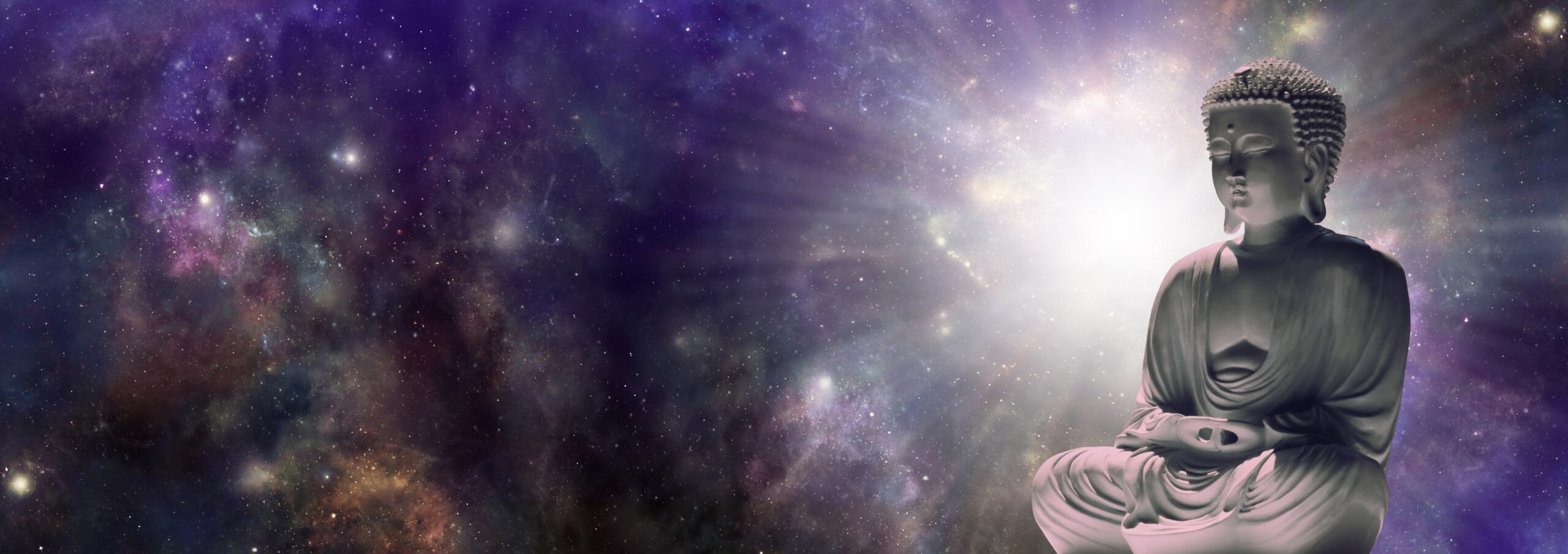Are Buddhism and Christianity Compatible with Science?
Are you awed by the compatibility of science and Christianity? Have you thought about the compatibility of science and other religions? What about Buddhism?
I grew up in Asia surrounded by multiple religions: Buddhism, Christianity, Confucianism, Taoism, etc. When I moved to the US, I decided that all religions were superstitious and would rather devote my life to science and technology. Ironically, decades later, it was the latest scientific discoveries that motivated me to reinvestigate Christianity. To my surprise, the harmony between science and Christianity was overwhelming.
More recently, claims that Buddhism was friendly to science drew my attention and prompted me to reinvestigate Buddhism. Would I be surprised again?
Brief Overview of Buddhism
From my perspective, some people may find certain branches of Buddhism appealing because they presume that there is no God. However, Buddhism has many schools that encompass various beliefs, traditions, and practices. The three major schools today are (1) Mahayana Buddhism, representing over 50% of the world’s Buddhists; (2) Theravada Buddhism, representing the original Buddhism; and (3) Vajrayana Buddhism, also known as Tibetan Buddhism. Both Theravada and Vajrayana are philosophical and nontheistic. By contrast, Mahayana is theistic, viewing Buddha as a savior and many bodhisattvas (persons on the path to becoming a Buddha) as saints. Therefore, it is extremely difficult to assess the compatibility of science with Buddhism as a single religion.
One way to analyze the compatibility claim is to examine the work of one of Buddhism’s chief leaders. This short article offers a brief critique of six beliefs: the existence of God, cosmology, the origins of life, evolution, human exceptionalism, and karma.
The Universe in a Single Atom is a book written by Tenzin Gyatso, His Holiness the Dalai Lama.1 The Dalai Lama is the spiritual and religious leader of Tibetan Buddhism. Many of its adherents believe that he is the fourteenth reincarnation of a bodhisattva. He has lived in exile in India since 1959 and was awarded the 1989 Nobel Peace Prize and the 2012 Templeton Prize for achievements promoting scientific and spiritual curiosity. He was the first person after Mother Teresa to receive these two awards.
God or No God?
In his book, the Dalai Lama claims that science and Tibetan Buddhism are similar in these ways: (1) both are investigative traditions focusing on cause-and-effect; (2) both are nontheistic in philosophical orientations; and (3) both reject a transcendent being as the originator of all things. He argues that the physical and life sciences belong to the first of the Four Noble Truths of Buddhism in that it examines the material basis of suffering, covering the entire spectrum of the physical environment.
My Response: Scientists can be theistic or nontheistic, depending on the philosophical orientation of the scientist. Many of the greatest scientists in history, such as Isaac Newton and Johannes Kepler, were Christians. Perhaps the similarity that Lama refers to is that both nontheistic naturalism and Tibetan Buddhism reject supernatural explanations.
Cosmology
According to the Dalai Lama, our present universe is only one of a sequence of an infinite number of universes, resulting in no absolute beginning and end. Each universe is in a constant state of coming into being and passing away. Whichever element (i.e., water, fire, and air) led to the destruction of a previous universe will act as a basis for the creation of the next universe. All three schools of Buddhism support this idea of infinite universes.2
My Response: In the 1950s, scientists explored the steady-state theory that hypothesized an oscillating universe like Lama’s reincarnating cosmology. However, this hypothesis was scientifically dismissed by the verification of dark energy, the ever-expanding universe, insufficient cosmic mass, and the second law of thermodynamics.3 Meanwhile, the big bang theory has been established as the scientific consensus and it clearly demonstrates the beginning of space, time, energy, and matter of our universe.
According to the early Buddhist scriptures, the Buddha never directly answered questions about cosmology because it did not pertain to liberation in nirvana. Apparently, the reincarnating cosmological ideas were formed as Buddhism’s philosophy evolved. By contrast, the Bible of Christianity, written thousands of years ago, starts by unequivocally stating that the universe was created with a beginning (Genesis 1:1). The big bang theory supports this Christian cosmology.
Origins of Life
According to the Dalai Lama, Buddhists don’t care to explain how living organisms emerged from inanimate matter—the origins of life (OOL). They think of life as in sentient beings only, but not plants or other life-forms. The motive of Buddhist theory is for sentient beings to answer ethical questions of the higher life-forms, to alleviate suffering, and to seek happiness. The Dalai Lama posits that Darwin’s theory of evolution does not explain the OOL.
My Response: Scientific data show that the OOL occurred only a geological instant (about 10 million years) of time after Earth’s hostile conditions became sufficiently stabilized to support life.4 Scientists acknowledge this rapid, amazing emergence of life from nonliving matter, and while non-Christian scientists are still looking for explanations, the Bible of Christianity records the OOL in its first chapter.
Evolution
The Dalai Lama appears to support the theory of evolution, natural selection, and the evolution of human life. However, he suggests that evolution is not a testable scientific theory, but rather a metaphysical theory highly beneficial for guiding scientific research. He seems to be unsatisfied with the idea of random mutation. Also, he doesn’t see how evolution can acknowledge the qualitative distinction between plants and sentient creatures.
My Response: The Bible records that God created all life-forms. Some scientists who are Christians believe that every species was directly created by God while random mutations may result in microevolution within the species. Others believe that God put the evolutionary process in place, thereby indirectly creating Earth’s different species after the OOL.
Human Exceptionalism
From the Dalai Lama’s perspective, there is no qualitative difference between human beings and nonliving things; they differ by degree and not by kind. There’s no concept of a soul that is unique to humans. He believes that two important drawbacks of Darwin’s evolutionary theory lie in (1) its inability to engage the question of altruism, such as food sharing and self-sacrifice; and (2) its redefinition of altruism as the expression of self-interests.
My Response: Christians believe that humans differ from animals not only by degree but also by kind. The Bible records that humans hold a unique position among animals as bearers of God’s image. Humans are physical, soulish, and spiritual beings. Humans affirm a law of right and wrong written on every human heart that helps explain altruism.5
Karma
The Dalai Lama maintains that there are two laws: (1) the natural law of causality by which a certain set of conditions will result in a certain set of effects; and (2) the law of karma by which an intentional act will reap certain fruits. This karmic causality is a natural process. Infinite reincarnations occur on Earth, where everyone can be reborn as a human being, animal, or insect.
My Response: No empirical data exists to support the concept of infinite reincarnations. In historic Christianity, the incarnation happened only once in the person of Jesus Christ. He appeared once to bear the sins of many and will appear again for judgment. Hebrews 9:27 explicitly rejects the doctrine of reincarnation: “People are destined to die once, and after that to face judgment.” Furthermore, the Bible teaches that a man reaps what he sows, thus ethically paralleling the Buddhist cause-and-effect system.
On Being Open-Minded
Buddhism, Christianity, and science all, in some way, seek to explain cause and effect. Certain scientists may find comfort in the philosophical schools of Buddhism, probably because these schools hold a nontheistic position. However, science can be theistic or nontheistic, depending on the scientist’s interpretation. I suggest that if any science-minded person is willing to view science through the Christian worldview lens, perhaps they will see that today’s scientific data are more compatible with Christianity than with Buddhism.
Endnotes
- Dalai Lama, The Universe in a Single Atom: The Convergence of Science and Spirituality, Kindle (New York: Harmony Books, 2005).
- José Ignacio Cabezón, “Three Buddhist Views of the Doctrines of Creation and Creator” in Buddhism, Christianity and the Question of Creation: Karmic or Divine?, ed. Perry Schmidt-Leukel (New York: Ashgate Publishing, 2006).
- Hugh Ross, The Creator and the Cosmos: How the Latest Scientific Discoveries Reveal God,4th ed., Kindle (Covina, CA: RTB Press, 2018); NASA’s Cosmic Times, “Origin of Everything: Hot Bang or Ageless Universe?” accessed January 31, 2023, https://imagine.gsfc.nasa.gov/educators/programs/cosmictimes/educators/guide/1955/origin.html.
- Fazale Rana and Hugh Ross, Origins of Life: Biblical and Evolutionary Models Face Off (Covina, CA: RTB Press, 2014).
- C. S. Lewis, Mere Christianity (San Francisco, CA: HarperOne, 2009).





